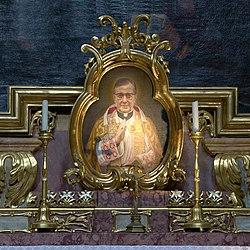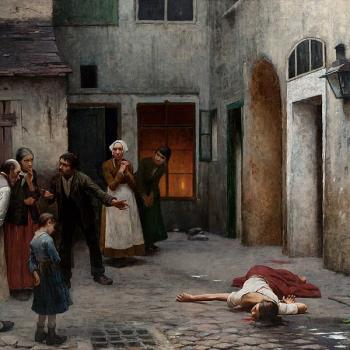“It represents a lack of integrity for a public official to expect others to accept the premise: “What I do publicly contradicts who I say I am religiously, but that doesn’t make any difference.”
Bishop Lawrence Brandt of Greenburg Pennsylvania, issued a pastoral letter recently in which he raised an important issue about Catholic politicians who support abortion.
Aside from the question of whether or not these politicians should take communion, (he thinks they shouldn’t) he raises the a more fundamental question, at least for non-Catholic voters, which is Can we trust them?
His reasoning here is simple. If someone will play false with something as basic as their faith, how can we believe them about anything else?
It’s an interesting question. The point of this question is not whether or not they are pro abortion. It’s also not whether they are Catholic. It’s their stubborn insistence that they are Catholics in full communion with the Church when even a cursory reading of the Catechism would tell them that they are not. The point is the arrogance and the lie.
What line of reasoning leads people to this? Cradle Catholics are among the most devout people I know. However it’s been my experience that converts are far less likely to be pro abortion Catholics than those who were born and raised in the faith.
This makes sense. After all, converts chose the Catholic faith, usually after a period of discernment and education about what it means to be Catholic. Most cradle Catholics have a good understanding of their faith as well, but it’s easier than it would be for a convert for some of them to just fall into their Catholicism without understanding or choosing it actively.
I wonder if there is something in that which predisposes them to this kind of wrong-headed view of their faith. How do they manage to see themselves as wholly and fully Catholic, even while they ignore the teaching authority of the Church on an issue like the sanctity of human life?
I have a theory that, in some way that makes sense to them, they see being Catholic as more genetic than religious.
I know quite a few Jewish people who feel this way about their Jewishness. I know Jewish people who have never been to Temple in all the decades I’ve known them and who have even less knowledge of their faith than I do, yet they are confident that they are, in fact, Jews.
I wonder if these pro abortion Catholic politicians see themselves the same way. If they do, I think they are basing their belief on a mistaken assumption about what it means to be Catholic, or Christian of any denomination. Christianity is not a genetic faith.
I believe that true Christianity always involves an active assent, a personal “yes” to God. It is that essential “yes” that we give voluntarily and from our hearts that shapes our faith and our subsequent actions.
Somewhere, in all the haze of being cradle Catholic and the many pressures to conform their faith to their politics, these politicians have lost that understanding of their faith. Rather than seeing it as a core commitment which will determine their values and actions, they see it as a social obligation which requires that they show up for mass and answer the responses. They are cultural Catholics rather than religious Catholics.
It appears that their understanding of themselves as individual human persons who must stand before God alone one day and account for what they did with their time in this life is lost to them.
They seem to have slipped right past that and into a sort of corporate we’re-catholic-as-a-group-and-that’s-all-the-fidelity-we-must-live view of their Catholicism. Instead of becoming part of a body of believers, they see themselves as part of an ethnic designation. Instead of a Community of Faith, they have defined their church as a consortium of adherents.
Whether it happened because of political accommodation or daffy religious formation, these people have lost the meaning of faith, and with it the meaning and the charge of what it is to be Catholic.
Bishop Brandt asks us if we can trust such people, not just with abortion, but with anything. I think this is a question we should consider carefully as we approach next week’s election.
Here is what he said on this matter:
“Any individual who says he can advocate for and enable the practice of abortion and claims that he can still be a Catholic in good standing, has a very serious problem with integrity which any community can ignore only at its own peril.”
Politicians who live in such a disintegrated way are a matter of concern not only to Catholics, but to “society itself,” Bishop Brandt said.
“It is a cause of very serious concern for all the citizenry about a matter of integrity. It is a very serious concern about placing public trust in a person who has demonstrated public misrepresentation.” (Read more here.)












